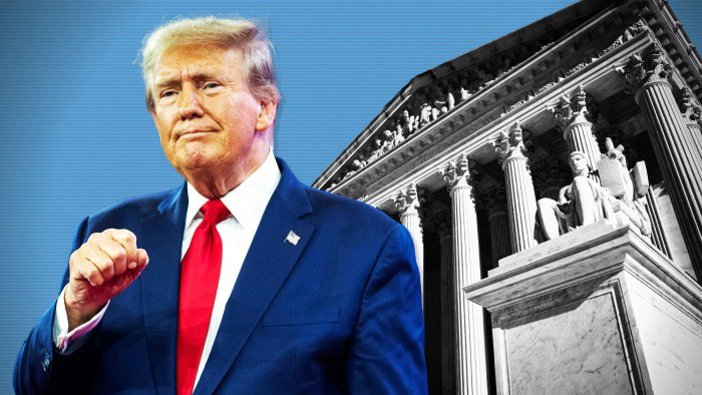
Supreme Court Clears Trump’s Third-Country Deportations
Supreme Court allows Trump administration to deport migrants to third countries, sparking legal and human rights debate.
Justices Grant Trump Administration Authority on Deportations
The Supreme Court on Thursday delivered a significant victory for President Donald Trump’s immigration policy, granting permission for the deportation of eight migrants from Djibouti to South Sudan—a destination not specified in their initial removal orders. In a short, unsigned opinion, the justices clarified that their earlier stay of a lower court’s injunction also halted a follow-up remedial order, eliminating the last legal barrier to the removals.
This decision reaffirms the administration’s power to execute third-country deportations under Trump’s executive order, regardless of whether the receiving country was named in original court documents. The case originated after a district court judge ruled the government had violated an April injunction by failing to provide six of the migrants with a meaningful opportunity to contest their removal. The Supreme Court stayed that injunction in June, and Thursday’s clarification now blocks any related remedial orders from taking effect.
Dissent Raises Human Rights Concerns
Justice Sonia Sotomayor, joined by Justice Ketanji Brown Jackson, issued a strong dissent, warning the court’s decision enables the deportation of noncitizens to countries where they could face torture or death. “Today’s order clarifies only one thing: Other litigants must follow the rules, but the administration has the Supreme Court on speed dial. Respectfully, I dissent,” Sotomayor wrote, stressing that the ruling undermines basic legal protections by allowing removal without notice or the opportunity to assert fears under the Convention Against Torture.
The migrants in question have criminal convictions, including charges of murder, armed robbery, and serious sex offenses involving minors or vulnerable victims. The Department of Homeland Security described them as “barbaric criminal illegal aliens” and emphasized that their removal supports the rule of law and public safety. “These sickos will be in South Sudan by Independence Day,” said DHS Assistant Secretary Tricia McLaughlin.
White House officials welcomed the ruling. Press secretary Karoline Leavitt called it “another incredible victory for America,” praising the Supreme Court for affirming presidential authority on immigration enforcement. White House Counsel David Warrington stated, “This decision is a clear rebuke of such judicial overreach,” asserting that district courts, not the administration, were in defiance of Supreme Court orders.
The ruling is likely to shape the ongoing national debate over executive power, judicial oversight, and the boundaries of U.S. immigration policy. While the administration celebrates the outcome as a win for law and order, critics warn that the decision risks undermining established protections and could set a precedent for future removals to dangerous locations. As the legal and political battle continues, the fates of migrants facing third-country deportations remain a subject of sharp controversy in the United States.






